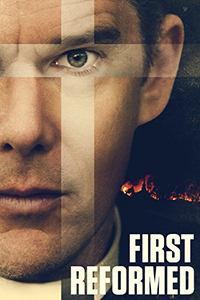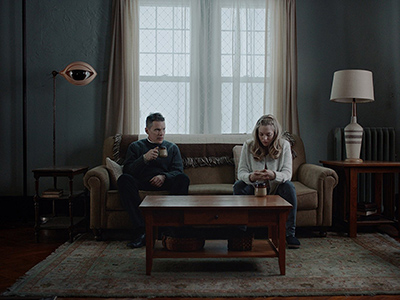In his book Conjectures of a Guilty Bystander (1966), the Trappist monk and author Thomas Merton asked, “Why does the Church insist so much on ‘turning to the world’ with acceptance and positive assent?” This was a central concern and puzzlement for Merton, especially given his religious vows that made him feel at times like a “guilty bystander” rather than an active participant in the world. Merton’s explanation for why the Church preaches an acceptance of and positivity toward the world was that it “senses in the crisis of modern man the ultimate danger of man’s refusal of himself. Whereas conservative Churchmen are still afraid that the modern world presents a moral danger by its incitements to joy and its affirmations of humanism, freedom, and earthly delights, the Church, in her wisdom, realizes that the greatest danger comes from the power of negation that is latent in this great and powerful society of ours.”

This provocative and surprising claim—that modernity is less plagued by hedonism than by asceticism—is a central theme in First Reformed, a film in which Merton’s life and works make several crucial appearances. Written and directed by Paul Schrader, First Reformed focuses on the pastor of a small, historic church in upstate New York that now survives only by tourism and the largesse of an affiliated megachurch called Abundant Life. Reverend Toller (Ethan Hawke) lives alone, suffers from indeterminate physical and mental illnesses that he medicates with whiskey, and provides the film’s voiceover narration by way of a journal he is writing as a form of prayer and contrition. Toller is a veteran with great sorrow in his past, but he is further shaken when a parishioner named Mary (Amanda Seyfried) asks if he will meet her husband for some pastoral counseling. Mary’s spouse, Michael (Philip Ettinger), is an environmental activist who has fallen into terrible despair over the irreversible effects of climate change. Mary shares his convictions about the need for human efforts to heal the planet, but she is disturbed by Michael’s despondency and by his suggestion that she terminate their pregnancy to spare their child from experiencing the impending ecological cataclysm. From their initial counseling session, which quickly becomes a political, philosophical, and theological battle, Toller emerges feeling “exhilarated”—but several dark twists follow from this meeting, sending Toller into an ever-deepening spiral of despair. How Toller grapples with his intensely Kierkegaardian sickness-unto-death becomes the bulk of the film, which is visually striking, emotionally gripping, and theologically complex.
The theological debates about righteous action and coping with despair make for an entrancing film, and Schrader handles his material in a style designed to give viewers the strange experience of both meditation and uneasiness. Nearly every shot is static and carefully composed, and long stretches are very quiet but punctuated by bursts of violence and visual extravagance. What Schrader accomplishes in First Reformed is a mode he theorized in 1972 in one of the classic works of film criticism, Transcendental Style in Film: Ozu, Bresson, Dreyer. In that book, which Schrader has updated and republished in connection with his film, he attempted to explain how certain filmmakers could use a slow, deliberate style “to express the Holy.” Unlike religious epics such as The Ten Commandments (1956), which Schrader calls “over-abundant,” transcendent films use stillness, patience, and austerity to make viewers engage with the divine. Bresson’s Diary of a Country Priest (1954) is a prime example in Schrader’s theory, and, with its alcoholic priest in crisis, is also a crucial model for First Reformed. Films in this style, at their best, use “boredom as a scalpel,” Schrader says, to cut away what is extraneous from our lives and to allow holiness the chance to move in.
Despite theorizing this style, Schrader has not until now attempted to make such a film himself. As he told Adam Kempenaar and Josh Larsen of Filmspotting, “I am too attracted to empathy, action, sex, and violence in film.” His career to date is not entirely disconnected from First Reformed—many critics have noted its affinities with Schrader’s scripts for Taxi Driver (1976) and Raging Bull (1980)—but the kinetic thrills of cinema predominate in his previous work. Viewers might be forgiven for failing to identify any holiness, for instance, in his sexy remake of Cat People (1982). But after a conversation four years ago with Pawel Pawilkowski, director of Ida (2013)—an austere and poignant film that clearly qualifies as transcendental—Schrader realized that the time had now come for his own attempt at the transcendent style. He embarked on a re-education in the form, watching two dozen of its best examples and lifting his favorite elements for use in First Reformed. (Among its pleasures for film buffs is the wealth of cinematic references: the opening titles come from Roberto Rossellini’s Voyage to Italy, a third act encounter with barbed wire is from John Huston’s Wise Blood, etc.) It is a remarkable feat that a film this erudite and patient can be so enthralling.
In addition to its relationship with Schrader’s film theory, First Reformed is very personal in its exploration of Christian Reformed culture. Schrader was raised in Grand Rapids, Michigan, in a strict Calvinist household that forbade him from going to the movies until he was eighteen. As an undergraduate at Calvin College, he chanced upon an Ingmar Bergman film festival playing at a seedy local theatre, and this initiated his extraordinary cinematic education and career. In his earlier work Schrader touched on his upbringing, usually to attack it. His porn-industry thriller Hardcore (1979), for example, is a nasty dig at his pious family—“a young man’s ‘F-you’ to his father,” as he recently described it.
Now in his early seventies, he returns to Christian themes with greater maturity and an unexpectedly generous eye. With nearly every character, First Reformed avoids simplistic caricatures of the theological positions it portrays. Toller is a committed man of faith, not a closeted atheist, and Pastor Jeffers of Abundant Life (Cedric Antonio Kyles, a.k.a. Cedric the Entertainer) preaches a prosperity gospel but never devolves into mere hucksterism. How people of faith might think about our environmental crisis is the film’s subject, but its bigger mission is transcendental: how do we find God in the deepest wells of failure and despair? The film gives no easy answers, but it invites viewers to experience its journey toward the Holy.

In one key scene, Jeffers counsels Toller about his predicament, insisting that by wanting radical political change through the effort of an outspoken church, Toller is not “living in the real world.” Toller responds by invoking lessons he has learned from reading Thomas Merton, and Jeffers counters that Merton was a monk who lived in Kentucky and wrote books: “that’s not the real world either.” Jeffers tells Toller that he is “living too much in the garden.” Even Jesus, Jeffers says, did not spend all of his time in the garden of Gethsemane, but sometimes went to the mountain top and sometimes went to the marketplace. Jeffers does not say that Toller should ignore his concern for the planet, only that he should incorporate that concern into a life which is more full and rounded than the one he currently inhabits in his empty house with his books, bottles, and pen.
What Toller chooses to do in spite of Jeffers’s counsel spring-loads the film’s second half, an explosive, sometimes fantastical set of events that are especially shocking after the quiet, conversational first half. Without giving too much away, I would suggest that the ending of the film stages the logical outcome of Toller’s asceticism and ultimately explodes its logic. The final shot, borrowed perhaps from Vertigo, opens the possibility of transcendence through an unforeseen grace that meets Toller in a very dark place, much like a Gethsemane full of thorns. “Gethsemani,” incidentally, was the name of Merton’s abbey in Kentucky, and part of Schrader’s suggestion may be that “living in the garden” cannot be reduced to only one meaning. The “power of negation” Merton found so alluring during his day seems all the more pressing in our current time of planetary crisis, but succumbing to that negation and believing it to be an end in itself cannot be our way. In a garden of sorrow we may experience abject despair but also a path to the Holy.
Charles Andrews is professor of English at Whitworth University.













